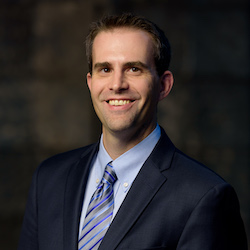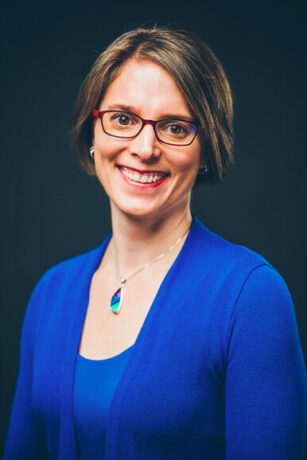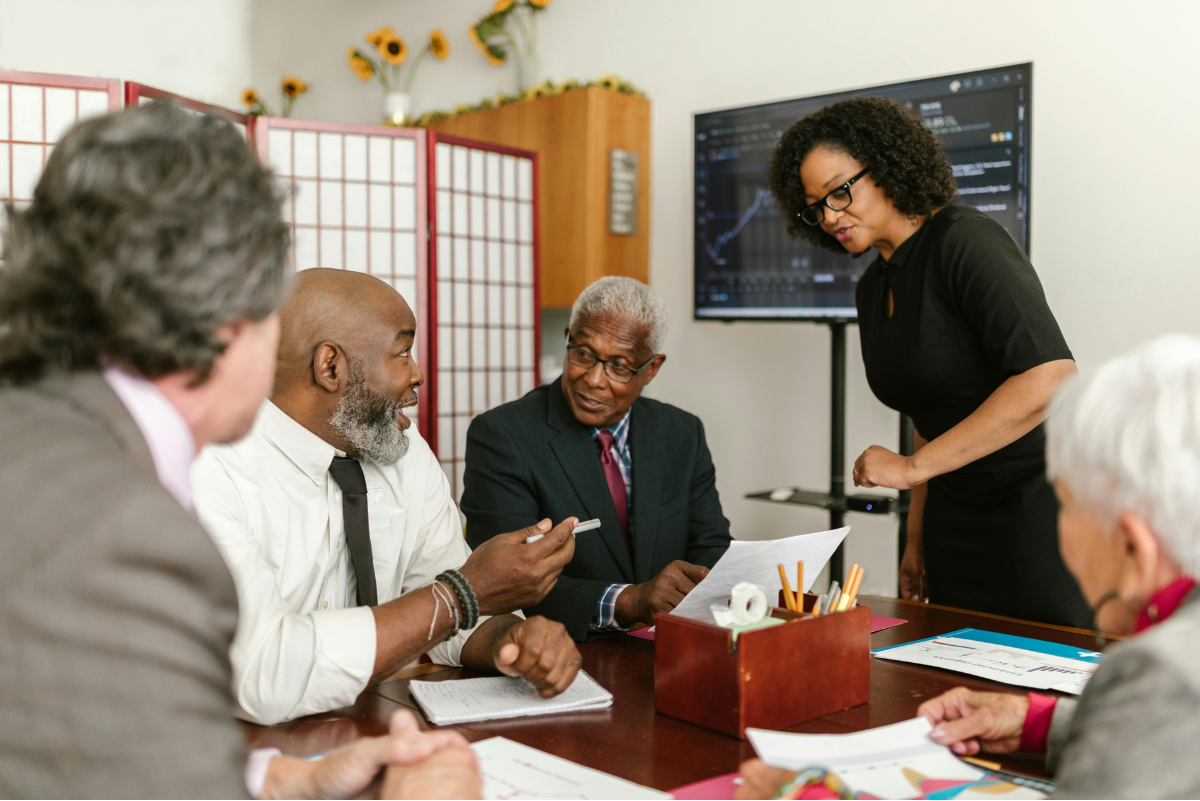What Role Can Religious Leaders Play in the Generosity Conversation?
What Role Can Religious Leaders Play in the Generosity Conversation?
By David P. King, Ph.D., Karen Lake Buttrey Director and Associate Professor, Philanthropic Studies

When was the last time you had a conversation about generosity with people in your faith community? I am not talking about shaping a fundraising appeal, spearheading a stewardship campaign, or even making a donor visit. I’m thinking about a broader conversation, anchored in questions like, How do you experience generosity in your daily life? What does generosity mean to you? How has giving or volunteering helped you build relationships in your community? What is happening in the ways through which generosity is shaping our larger life together?
As Elizabeth Lynn highlighted in our last Insights newsletter, the Generosity Commission’s new report, Everyday Actions, Extraordinary Potential: The Power of Giving and Volunteering, seeks to spark a conversation about the role of generosity in American life. At Lake Institute, we believe this is a crucial conversation to have in every community—and that religious leaders need to be at the table.
The Generosity Commission report paints a powerful picture. America has experienced a decline over the past few decades in formal giving and volunteering behaviors. And, while the reasons for this decline are multi-faceted, parallel declines in religious attendance and affiliation seem to be part of the picture. After all, religious Americans typically give more money and volunteer more often, for secular as well as religious causes. At the same time, more than half of Americans say that their giving is motivated by their religious or spiritual values. Given this picture, we all need to be talking about the role that faith plays at the intersection of giving, volunteering, and civil society.
Lake Institute affirms the Generosity Commission’s view that declining participation in formal giving and volunteering is bad for our shared civil society. First, a broad base of participation in giving and volunteering is an intrinsic social good that should be pursued and promoted to build social ties, even while promoting pluralistic perspectives. Second, nonprofit organizations generally, and faith-based organizations particularly, are essential assets, offering important services and public goods that the government and the market are not providing. In a nutshell: giving/volunteering is good for us, for our communities, and for our pluralistic civil society, even as faith-based nonprofits and congregations serve as a vital asset in building and maintaining our life together.
Bringing Diverse Stories and Deep Wisdom to the Table
Given the vital role that faith traditions and religious communities play in our civil society, how can religious leaders be part of the broader dialogue about generosity?
One first thought: don’t become paralyzed by the data. Yes, seeing the big picture in aggregate is important, but the trends may not describe your particular context. A first step is to listen to the voices around you. What stories are you hearing about the generosity of families, nonprofits, and networks in your community? Listening to diverse voices and sharing local stories is vital for a fuller picture of what generosity actually looks like and can help us better understand how faith shapes generous beliefs and behaviors.
Religious leaders can also deepen the generosity conversation by sharing the wisdom of faith traditions that helps make sense of why giving matters at all. As we regularly communicate across our Lake Institute resources, the dynamic relationship between faith and giving cannot be simply summed up in membership and attendance numbers, nor in hours volunteered or dollars given. Faith traditions shape motivations and imaginations around generosity, within but also beyond the forms of organized religion. As the Generosity Commission report advocates, we must continue to expand our thinking about the deeper connections between faith and giving, and we can do this in part by attending to other modes of spiritual belief and practice alongside more traditional forms of religious life.
Articulating the Distinctives of Religious Giving
Religious leaders can also help to draw attention to the distinctive forms that religious giving takes. To give just one example, a recent report examining the School of Philanthropy’s most recent Philanthropy Panel Study’s data found a significant reduction in the number of households itemizing their charitable deductions after the 2017 Tax Cuts and Jobs Act (TCJA) raised the standard deduction for individuals’ income taxes. This reduction led to a loss of over $20 billion in charitable giving in the first year of the new law. The only sector that proved to be an exception was giving to religious congregations, where the standard deduction increase had little to no effect. Why? I believe the answer is because there are other motivations or obligations in religious giving which outweigh a tax deduction.
To make sense of findings like these, we have to go deeper into what we know (and do not know) about religious giving. As Dr. Patricia Snell Herzog notes in her Expanded Perspective for this Insights issue, “Habits are also needed to enact calls to be generous into regular patterns of behavior. Faith motivates and habit sustains.” Exploring these ideas more fully will help religious leaders become more confident, comfortable, and engaged in the vital work at the forefront of present concerns on the future of generosity in America.
Highlighting the Civic Role of Faith Communities
Religious leaders can also help clarify the importance of faith communities and organizations to public life. Faith-based organizations have historic roots in almost every local community. They provide essential services across our nation. They respond immediately and compassionately in rescuing and rebuilding after a natural disaster. Even in the midst of increasingly fraught public discourse, many faith communities are playing a vital role in building bridges and deepening connections. And, importantly, most faith-based organizations do not do any of this work alone. They serve as essential partners with secular or other religious organizations.
Joining the Larger Conversation
Finally, and crucially, discussions about the role that faith plays in giving must not be limited to religious Americans, or conducted in isolation from the larger conversation about generosity in American society. It is essential that both local and national dialogues about the state of generosity include religious leaders, networks and institutions. As the Generosity Commission report puts it:
Religious leaders have access to deep traditions, communal practices, ready platforms, and “captive audiences” for teaching about generosity; they are an untapped resource for developing a meaningful conversation about generosity. Nonprofit and philanthropic leaders should actively invite religious leaders into local and national conversations about the future of generosity in American society, to engage their constituents, to gain their insights, and to help them see that they are part of a larger story about changes in generosity. These religious leaders can serve as models for how leaders in other domains can bring their giving beliefs and practices into the public sphere.
Religious leaders clearly have the ability to contribute key insights to the larger ‘generosity conversation.’ If we are being invited to step into the spotlight and play a major role in this important conversation, are we ready?
Questions to explore:
- What would a fresh conversation about generosity in daily life look like in your faith community?
- How can religious leaders best contribute to the broader conversation about the state of American generosity?
- If you were to join this broader conversation, what is one data point or piece of practical wisdom that you would share from your experience?
Expanded Perspective: Generosity Traditions
By Patricia Snell Herzog, Ph.D., for Fall 2024 Virtues & Vocations Magazine

People often say you should study what you love, and I do. I love to be inspired by people, and I love the ways that social science research can move beyond merely naming problems in need of solving to helping us learn from the best of our social surroundings to make improvements. In more than two decades immersed in research, I have gained wisdom by learning from the traditions people embrace to motivate and sustain their calls to be generous. While these teachings are numerous, I will limit myself here to focusing on two sets: generosity in faith traditions and in habit-forming traditions.
Generosity in Faith Traditions
In surveying, interviewing, and observing people from all walks of life, across nearly every age, race, education level, occupation, and religiosity, one of the great takeaways has been that generosity is rooted within all major faith traditions. Across the globe, people raised within the contours of Judaism, Islam, Protestant Christianity, and Catholicism have all encountered religious teachings about the spiritual value of giving to benefit others. While I am no theological scholar, here are tidbits I have gathered over the years regarding calls to be generous in faith traditions…
Join Us for the 20th Annual Thomas H. Lake Lecture Featuring Dr. Willie James Jennings
 Mark your calendars for the 20th Annual Thomas H. Lake Lecture on Friday, April 11, 2025, at 4:00 PM, featuring Dr. Willie James Jennings, the Andrew W. Mellon Professor of Systematic Theology and Africana Studies at Yale University. Dr. Jennings is a theologian who teaches in the areas of Christian thought, race theory, decolonial and environmental studies. He is the author of The Christian Imagination: Theology and the Origins of Race published by Yale University Press and recipient of the 2010 American Academy of Religion Book of the Year in the Constructive- Reflective Studies category. It is one of the most important books in theology written in the last 25 years and is now a standard text read in colleges, seminaries, and universities.
Mark your calendars for the 20th Annual Thomas H. Lake Lecture on Friday, April 11, 2025, at 4:00 PM, featuring Dr. Willie James Jennings, the Andrew W. Mellon Professor of Systematic Theology and Africana Studies at Yale University. Dr. Jennings is a theologian who teaches in the areas of Christian thought, race theory, decolonial and environmental studies. He is the author of The Christian Imagination: Theology and the Origins of Race published by Yale University Press and recipient of the 2010 American Academy of Religion Book of the Year in the Constructive- Reflective Studies category. It is one of the most important books in theology written in the last 25 years and is now a standard text read in colleges, seminaries, and universities.
Join us in person at Witherspoon Presbyterian Church in Indianapolis, or via livestream, to explore powerful insights on faith and philanthropy. A reception will follow the lecture, offering a chance to connect with others in the community. RSVP today to confirm your attendance and receive reminders, including the livestream link. If you need accommodations, please reach out by April 1 to ensure accessibility for all attendees.
Final Call: Apply for 2025 ECRF Scholarships by October 14!
 The 2025 Executive Certificate in Religious Fundraising (ECRF) program is excited to offer partial scholarships through the Thomas H. Lake Scholarship Fund, providing $675 in support to 12 recipients. This program empowers faith-based leaders to engage and inspire donors motivated by spiritual values. With limited scholarships available, the deadline to apply is fast approaching—October 14 is your last chance!
The 2025 Executive Certificate in Religious Fundraising (ECRF) program is excited to offer partial scholarships through the Thomas H. Lake Scholarship Fund, providing $675 in support to 12 recipients. This program empowers faith-based leaders to engage and inspire donors motivated by spiritual values. With limited scholarships available, the deadline to apply is fast approaching—October 14 is your last chance!
Applicants will be notified by early November, and we encourage you to register for your preferred cohort when submitting your application. If you have any questions, feel free to reach out to Anne Brock at anmbrock@iu.edu.
As one ECRF participant shared, “I still see the books I read for the ECRF training on my bookshelf and am reminded that it’s not about the numbers, but instead about what God is doing through this ministry and through the generous gifts of our donors.”
Subscribe
Insights is a bi-weekly e-newsletter for the religious community and fundraisers of faith-based organizations that provides:
- Reflections on important developments in the field of faith and giving
- Recommended books, studies and articles
- Upcoming Lake Institute events

